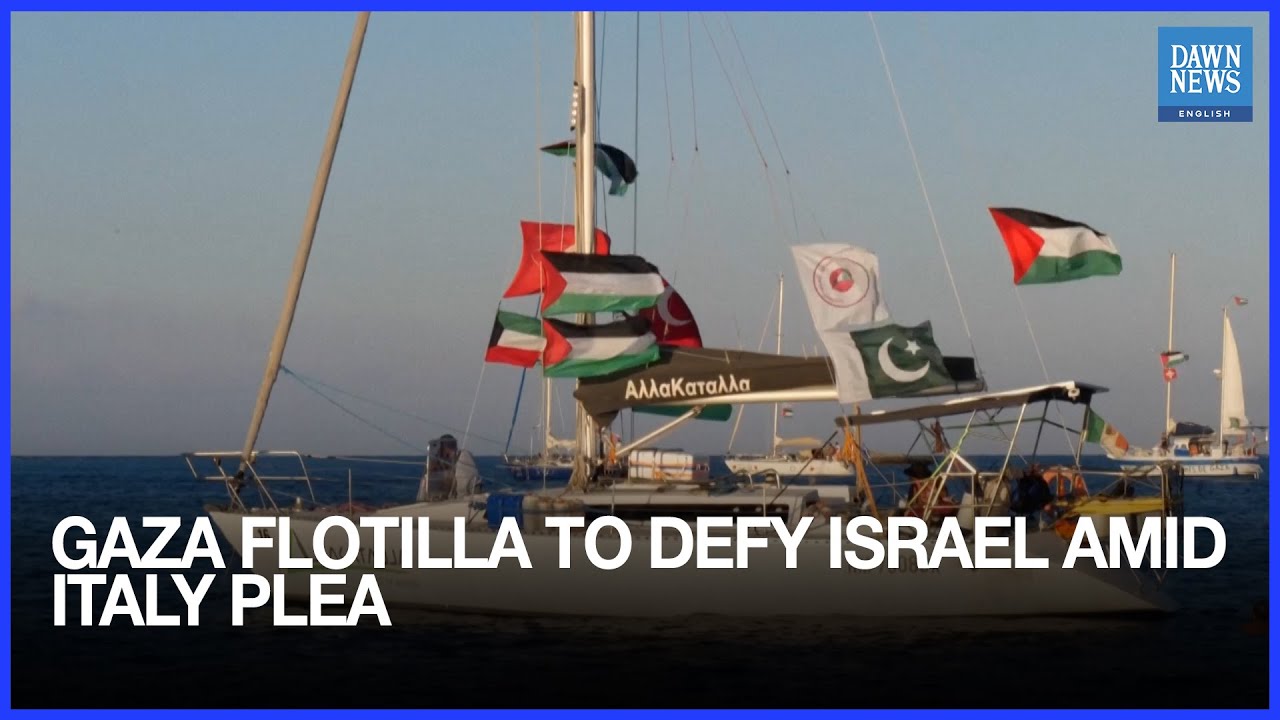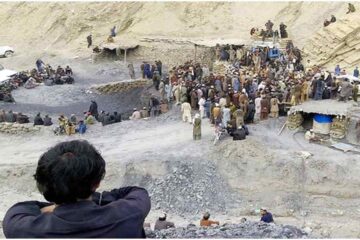BDRunner, September 02: The Global Sumud Flotilla, an international civilian flotilla carrying humanitarian aid and personnel, is facing increasing pressure from the Israeli navy.
Despite aggressive attempts to block it, organizers claim that many of the ships are committed to reaching Gaza. They see the mission as a symbolic attempt to break the long-standing sea blockade.
According to Navy sources, several ships lost contact on October 01 due to camera shutdowns and disruptions to their GPS signals. The ships were intercepted, including one allegedly attacked by a drone. Israeli forces have also carried out boarding operations.
Several agencies reported that several workers were detained and removed from the ships. The navy announced that they were “illegally detained” and that at least three ships were attacked, according to the influential Pakistani daily Dawn.
The flotilla also said it had already seen more than 20 unidentified ships approaching, indicating the start of a naval blockade.
The AP reported that Israeli forces had intercepted 19 of the flotilla’s ships about 70 nautical miles from Gaza. Several activists described the interception as a series of warnings, threats of seizure, and the use of water cannons. Many ships were reportedly moving forward despite the interception.
Reuters reported that the flotilla approached the flotilla about 120 nautical miles off the Gaza coast before Dawn when the unidentified, dark-skinned ships approached it. They then adopted aggressive tactics and cut off the flotilla’s communications.
The report also said that the flotilla had been subjected to drone attacks (including the use of stun grenades) and signal jamming. Israel has not publicly acknowledged these allegations.
Another Reuters report said that organizers said 13 aid boats had been intercepted. However, 30 more ships are still en route to Gaza. Among those detained was Swedish climate activist Greta Thunberg. Protesters have condemned the blockade as a violation of maritime law in international waters. The incident has also sparked a global diplomatic backlash.
The Guardian reported that the flotilla members described being harassed on the sea route. They alleged that Israeli vessels surrounded and cut off communication with the aid ships and took the flotilla about 140 miles offshore.
The newspaper reported that Italy and Greece have urged Israel to allow safe passage. On the other hand, the organizers have rejected the offer of alternative supplies through churches or third parties. They insist that the primary purpose and goal of the mission is to deliver aid directly by sea.
Other media outlets reported that the flotilla’s vulnerabilities were also confirmed at the beginning of the journey. The AP reported that the flotilla’s ships were attacked by drones south of Greece, causing explosions and loss of communication. Although there were no reports of casualties, the attack exposed the mission to a new type of risk.
Reuters previously reported that drones allegedly attacked a Portuguese-flagged flotilla anchored in Sidi Bou Said in Tunisian waters. The ship caught fire, but everyone was unharmed. The country has denied the drone attack.
The flotilla’s coordinating body, the Sumud Nusantara Command Center (SNCC), said the two main ships, the Alma and Sirius, were surrounded by a military vessel. This disrupted their CCTV and communication systems. The SNCC described the incident as a planned attempt to intimidate.
Malaysia’s The Star reported that an Israeli warship was just five feet away from the Alma and disrupted the system. But it later left.
According to the AFP report, the Israeli Foreign Ministry made it clear in a statement that it would not allow ships to enter areas of Gaza where fighting is still ongoing and would not lift the naval blockade. It offered to stop the boat at the Ashkelon marina as an alternative route to deliver aid to Gaza.
The incident has caused strong international reactions. Fifteen countries, including Bangladesh and Pakistan, issued a joint statement calling for the flotilla’s safety and respect for international law. Belgium has demanded an investigation into the drone attack, while Malaysia has called for safe sea lanes.
Al Jazeera reports that Israeli forces have stopped 13 ships and detained more than 200 people, including Swedish climate activist Greta Thunberg.
Qatar-based media reported that a ship named Mikeno is currently in Gaza waters, according to the Global Sumud Flotilla Live Tracker. However, it is not yet known whether Israeli forces have seized it.
Israeli commandos continue to obstruct the flotilla vessels. Currently, the fleet has 24 active ships, several of which are operating near the waters of Gaza.
Against this backdrop, the participation of Bangladeshi photographer Shahidul Alam has increased the importance of the flotilla operation for South Asia. Alam said that he is participating “with the love of all the people of Bangladesh” and described the situation in Gaza as genocide.
From a legal perspective, the conflict between the flotilla and Israel has raised some complex questions. For example, is it right to seize civilian ships in international waters, and how legal and fair is the blockade? What are the rights of neutral boats?
Although Israel says that the blockade is necessary for security, critics say it is a crackdown on civilians and a violation of humanitarian principles.
The flotilla is now less than 120 nautical miles from Gaza, an area that organizers have labeled a “high-risk area.” The flotilla’s next steps are crucial. Will the ships be forcibly detained, arrested, or partially disembarked? However, organizers say that all incidents are being recorded live, so any evidence of violations can be brought to light.
Whether the aid flotilla reaches the Gaza coast or not is no longer the main issue. The operation has already garnered global attention by challenging the blockade and transforming a peaceful protest into a maritime conflict.
N/M




